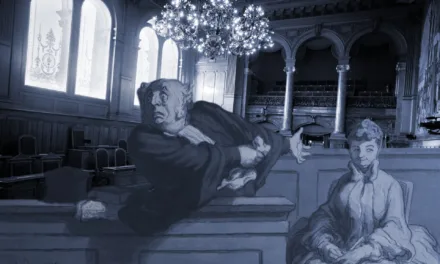
Ask a Ghostwriter: Your Questions Answered

Ghostwriting is a central part of the publishing industry yet rarely discussed. Despite being involved in almost every aspect of the writing and publishing industry, the writing community tends not to talk about us very much. We’re a well-kept secret, propping up the credited writers and allowing them to express their creative visions from the wings.
I joined the team at Novlr from a successful career as a ghostwriter and editor. I used Novlr from the get-go and was one of its early adopters. Many a best-selling novel, self-published memoir, case study, short story, and even the odd picture book have been written in Novlr, and ghostwriting has given me a unique view of the publishing industry.
There’s lots of information out there about traditional and self-publishing. But ghostwriting is one of those writing careers that often falls through the cracks. A few weeks ago, I put out a call on social media, asking you to send me any questions you wanted answered about being a ghostwriter, and I got some great responses! So let’s get started:
What is a ghostwriter?
“Oh, I love ghost stories,” is usually the first reaction I get when I tell people that I’m a ghostwriter. Most people have heard the word, but genuinely have no idea what it means. While yes, I do occasionally write ghost stories, that isn’t what a ghostwriter is.
A ghostwriter is someone who writes on behalf of someone else. There are many reasons why this might be. Someone might be good at coming up with plot ideas but doesn’t have the writing skills to turn them into a novel. They might be trying to write a book in a language that isn’t their first and lack the literary structure to appeal to the audience for whom they’re trying to write. They might be a business that wants to write a how-to book as a marketing strategy. Or, they could be someone with a passion for writing who just doesn’t have the free time to dedicate to it. Whatever the reason, a ghostwriter’s job is to take the client’s vision and make their book a reality.
How did you get started ghostwriting?
Like many other ghostwriters, I fell into it by accident. I started with editing non-fiction while at university. I studied history and spent a few years as a Museum curator at various institutions, where I regularly contributed to scholarly journals on behalf of the team leads. When I decided to go freelance, I already had experience writing for others without credit. When an archaeologist I’d worked with a few years previously approached me to help research and ghostwrite contributions his new non-fiction book, I decided to take him up on the offer. I dedicated myself completely to writing after that.
I got lucky in that my first freelance project was a relatively big one – it gave me the leg up I needed. But I still had to start slow as I grew my reputation and built up my portfolio. A lot of my early work was blog and journal articles, short stories for magazines, and even some historical-themed content for local antique businesses! I took as much work as possible – and it’s those years of overloading myself with as much work as I could find that finally paid off and put me in a position to pick and choose the projects I’m passionate about.
Is ghostwriting a full-time job, or is it something you can do on the side?
Like any freelancing gig, you can dedicate as much or as little time to it as you want. I was in a privileged position to have been able to make it my full-time profession very early on, but this won’t be the experience for everyone.
Most ghostwriters just starting out will probably work on smaller projects alongside a day job as they build their reputation and portfolio. But even if you don’t want to go full-time, there are many smaller writing projects you can do for supplementary income. You can even do ghostwriting adjacent things that don’t require the same creative input, like developmental editing (offering rewrites and restructures on pre-written work).
Do ghostwriters only work on books?
Many ghostwriters get snobby about what constitutes a “real” ghostwriter. For me, a ghostwriter is anyone who writes for money, without credit, not just someone who writes books. That means my definition encompasses all kinds of writing, including copywriters and bloggers. There are even people who ghostwrite fanfiction, believe it or not!

How does it feel when someone else gets credit for a book you wrote?
I just genuinely love writing, so for me, credit is secondary. I love taking someone’s idea and bringing it to life, so the act of creation is what really drives me.
That said, ghostwriting is, of course, a job, and if you think about it that way, then most people don’t get specific credit for the work that they do. Not being credited is also often a choice, because the ghostwriter carries none of the risks. I get paid whether a book is successful or not – it’s the credited author who needs to approach agents, publishers, and does the marketing.
Honestly, there’s a handful of books I’ve worked on that I wish I could tell people about. But I can be proud of myself and my achievement without needing that external validation. I think for ghostwriters, that’s the key. You need to be confident and happy in your own abilities because you won’t have the validation of a fanbase or sales.
How do you build a portfolio if you can’t tell people about your work?
This is a great question, and it’s definitely a tricky thing to navigate. Because I can’t publically advertise my past projects, at first glance, a prospective client needs to take my work history at nothing more than my word. This is why word of mouth and industry reputation is so essential.
That said, people who seek out ghostwriters are already aware that there may not be a publicly available portfolio from the beginning, which takes away a lot of that early concern. Knowing that discretion is guaranteed is also something that can actually be of benefit to a ghostwriter.
Of course, there are still some clients who want to see examples of work, and for this reason, I make sure that I have early draft examples available for which I’ve received written permission from the credited authors. Many credited authors are happy to have you use early drafts for the sake of examples, as they are often different enough from the finished product. For more significant contracts, I also keep a handful of projects under my belt with author permission that requires prospective clients to sign an NDA (non-disclosure agreement) with the credited author or publisher before viewing – think of it as a reference in a job interview.
What happens when a credited writer doesn’t give you what you need to finish a job?
I’ve had lots of projects sort of fizzle out as the credited author lost interest or had other life things get in the way. I also have some projects that have dragged on for years (I have one still open project that was meant to be completed in 6 months but is still ongoing, three years later!).
For this reason, it is vital to have a contract in place. I clearly outline expectations for both parties to make sure there is no misunderstanding on the size and scope of the project, nor what the ghostwriter and credited author can expect from each other. It’s also essential to include a payment schedule in the contract for this reason. If a 2-month job ends up taking a year, and you’re not going to be paid until the end of it, that can cause huge cash flow problems for a freelancer. If you set a payment schedule based on time or deliverables (i.e. by chapter, draft, or word count), you’ll make sure you’re never left out of pocket.
How do you decide what to charge?
This is a question with no easy answer. Different ghostwriters have different prices and different ways of negotiating that price. I personally have a hybrid system. I charge a set fee based on an estimated word count calculated at a per-word rate, but I know other ghostwriters who charge per page or a set hourly rate. My prices are staggered depending on what an author needs – for instance, I charge less for writing from a full outline than I do for writing from notes and more for non-fiction that requires research than I do for novels.
To set your rates, you basically have to determine your ideal income based on your professional ability. A novice ghostwriter will charge less than a seasoned one. Be objective about where you sit on the spectrum, and when you feel you have more experience, you can up your prices and give yourself a pay rise, so to speak.
If you have an ideal yearly income in mind, then work out how many projects you can realistically fit into a year, taking into account project creep, and you’ll be able to set your rates according to that goal. This is why it’s important to be realistic about your professional ability. If you set your ideal annual income too high before you’re ready to consistently deliver work of sufficient quality, you’ll ruin your market reputation. And nothing kills a ghostwriting career faster than a bad review that potential clients will hear about.
How many books do you write a year?
I tend to take on two major projects a year, supplementing it with smaller works like short stories, articles, or editing work. Unfortunately, it leaves me with very little time to sit down to do any of my own writing. Thankfully, joining the Novlr team has allowed me to continue doing what I love (helping writers write books!), but I can now dedicate my writing time to my own projects instead.

Do you ever get paid in royalties?
I have only ever negotiated royalties for one project because it was a sure thing. The book already had a publisher and a captive audience, so I was willing to work for a reduced rate, knowing I’d potentially receive a few years of regular income from it. I still got paid an upfront fee, but I was happy to negotiate it down for a royalty percentage.
In general, however, no, I never work for royalties. One of the benefits of being a ghostwriter is getting an upfront fee without carrying any of that financial risk. Sure, I might miss out on the occasional bestseller that might have made me more money, but I didn’t choose this line of work for the chance at a big payday. I chose it because I get paid to do what I love – write books.
How do I become a ghostwriter?
Getting started can be a lot of hard work. Like any writing career, you just need to write—a lot. Most people fall into it by word of mouth because someone has read something of yours that they liked, so make sure you’re getting your words out there to be seen by the kinds of people you want to target. For me, I started with non-fiction before branching into fiction. I made sure I submitted to journals and offered my services as often as possible. Despite being an invisible profession, you must be a visible writer.
You can take other more targeted steps, like joining a freelancing site or approaching publishers directly. However, to approach publishers directly, you already need to have a prolific body of work and a good industry network, so it’s definitely not a step I would recommend to anyone just starting out. Freelancing sites can be good, but there are also a lot of charlatans on there undercutting genuine writers for sub-par, often plagiarised work, so it can be a disheartening place with a lot of competition.
What’s the most important piece of advice you can give someone who wants to be a ghostwriter?
There are two pieces of advice that I wish I’d listened to early in my career. Firstly, never work without a contract. Secondly, never undervalue your work.
I was resistant to both those things at first as I thought they’d be offputting, but the reality is that you probably don’t want to work for someone who is resistant to a contract or who doesn’t value what you do enough to pay you for your time. Your time has value, as do your skills and expertise – the more you value yourself and put things in place to protect that value, the better quality clients you’ll bring in.































